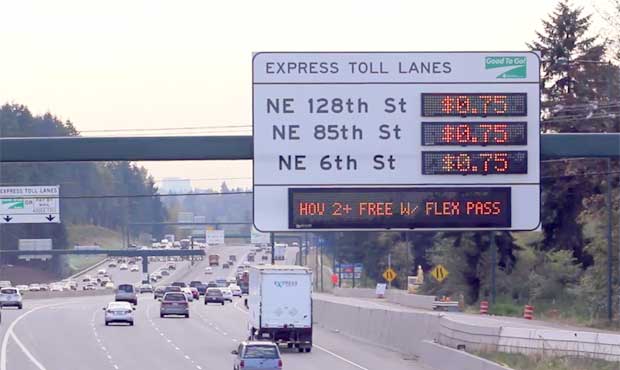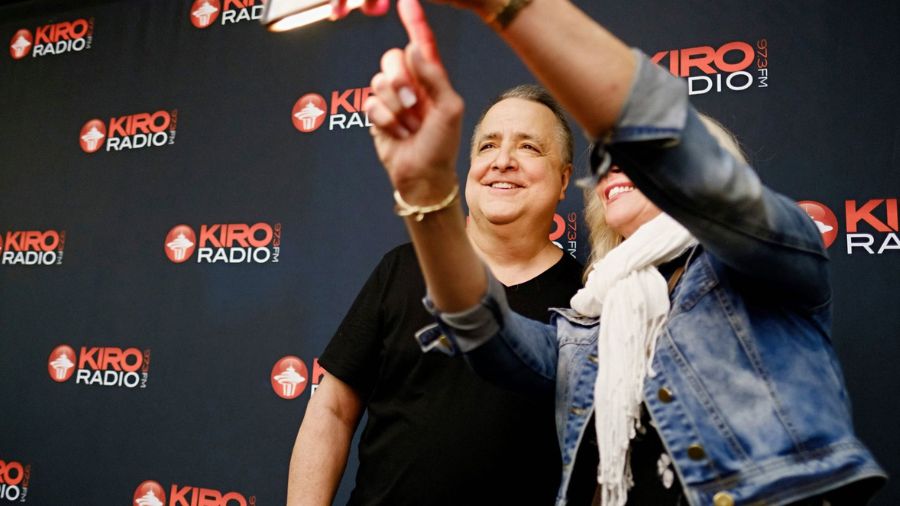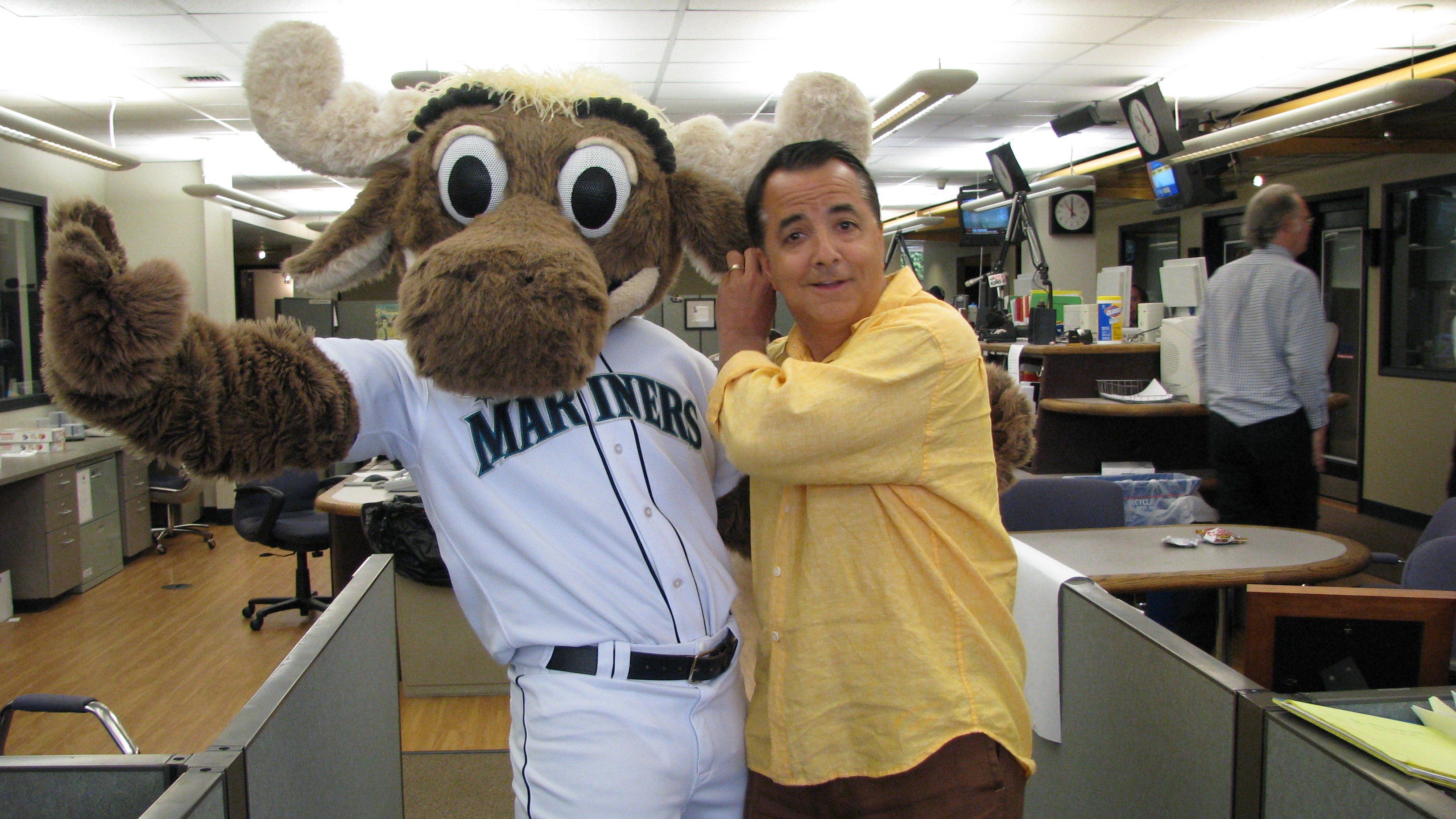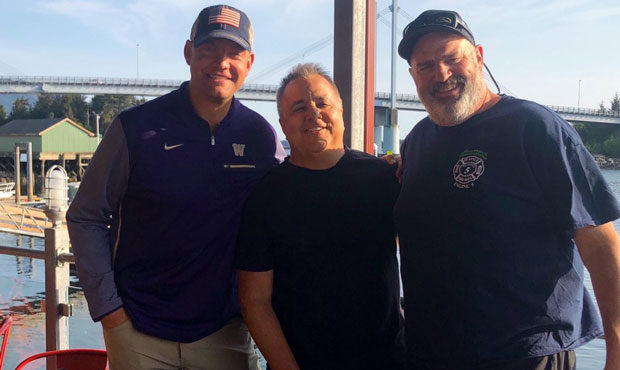Transportation official fights Dori’s notion of new road tolls
Sep 20, 2017, 3:09 PM | Updated: 4:26 pm

(File, WSDOT)
(File, WSDOT)
Dori Monson has alleged that the Washington State Transportation Commission’s pay-per-mile pilot is really about new road tolls for the state.
“There is a plan in the works, that if implemented, it would turn every road in the State of Washington into a toll road,” Dori said.
“It does make every road a toll road,” he said. “There’s no question about that. That’s how I’ve characterized it, and I think it’s a fair characterization – every road becomes a toll road with this system.”
Dori: The plan to toll every road in Washington
Reema Griffith, executive director of the commission, contests that notion. She went head-to-head with Dori addressing his concerns about the pay-per-mile program the state is currently experimenting with.
“Just to be clear, we are talking about a notion of paying by-the-mile, instead of paying by the gallon of gas, like we do today under the gas tax,” Griffith said.
How it works
The average car gets 20 miles per gallon. But Washington faces declining revenue from the gas tax as cars become more efficient, hybrid car sales go up, and electric cars come online. That revenue pays for road maintenance. That’s the basis for the pilot; to test methods for drivers to pay for the miles they drive, instead of the gallons they buy.
“The gas tax is doing OK today,” Griffith said. “(The pilot) is something we are looking to the future, when we start seeing our fleet switch over and that mpg goes from 20 to 35. Our forecasters say that we are going to go up to 35 miles per gallon by 2035. That equates to about a 45 percent reduction in our net fuel taxes per mile.”
“…we are looking at a sustainability approach so that our roads don’t crumble as the gas tax begins to fail,” she said.
Volunteers are testing four methods of tracking miles. They aren’t actually being taxed. But if they were, they would be charged 2.4 cents per mile.
Of the four methods, two involved technology and two do not.
- Prepaid: Buy a block of miles and drive until they are up.
- Post-pay: Have your odometer read or even text in a picture of your odometer to be charged.
- Device: GPS-enabled mileage meter. Similar to what many insurance companies use with their customers.
- Smartphone app: An app that would track miles driven.
The commission is experimenting with the methods under instruction of the Legislature. Under pay-per-mile, as currently instructed, the gas tax would go away and be replaced by the new tax.
How Dori alleges it will work
Dori has been making his road tolls argument for about 16 years. That’s when he broke the story about the state’s 20-year-plan to toll every road in Washington.
“I was told by my sources (at the time) that the eventual goal was to implement variable pricing,” Dori said. “I remain certain that is the ultimate goal. Once they get GPS or smartphone enabled tracking, they will eventually make driving during morning-and-afternoon rush hour very expensive. Just as they’ve done with the $10 HOT-lane tolls on I-405.”
“The public is very naive if they think this tax will remain at a flat 2.4 cents per mile,” he said. “The goal is to make it financially punitive to drive at peak times. Do not be fooled by their claims of this being a revenue-neutral tax.”
Concern: GPS tracking and road tolls
A concern, according to Dori, is that a GPS device would track which road a person is driving on, then charge them more or less for being on that road, and at a certain time. He argues this would lead to tolling every road in the state.
“That’s why we want to test non-technology approaches,” Griffith said. “That’s the point of the pilot. Can we do this in a non-clunky and efficient way if there isn’t technology involved? Also, it’s really a chance for folks to experience either way. We want people to try both ways (in the pilot).”
“It’s not intended to become a toll … we are looking at a statewide source that looks at all roads,” she said. “We are looking at taking care of our rural roads. We can’t toll those roads. People can’t divert. And to make tolling work you have to have enough volume, you have to have congestion. And you have to have, basically, like a bridge where you don’t have a lot of alternatives, so I’m going to take this bridge and pay a toll.”
Concern: Social engineering
Dori promotes that this sort of tax, which he believes is a toll on every road, has a social engineering component. The notion is that it will aim to get people out of cars and into other forms of transportation.
“That’s not the intent,” Griffith said. “We are looking at a flat rate. Social engineering, maybe, could be argued if you wanted to price every road and determine when people want to go … really, you could say the gas tax has been, in a way, social engineering if you want to go with that angle. Because it’s embedded. Most people don’t know what they are paying. And when you look at the numbers, people driving cars getting less than 20 miles per gallon are paying way more per mile than people driving more efficient cars.”
“The 2.4 cent rate that we will test, is equivalent to what the average car today in Washington is paying in gas taxes,” she said. “Right now we are paying by the mile, but we don’t think of it that way … if you have a car that gets the average rate of 20 miles per gallon, you are paying 2.4 cents in taxes today, per mile. If I drive a Prius, I’m paying about a penny. But if I’m driving a pick-up truck … I could be paying 5-6 cents per mile.”
Concern: Lack of funding
Griffith encourages skeptics to take part in the volunteer program and provide their feedback — skeptics like Dori Monson. That way, the commission gets more accurate feedback, instead of just volunteers who don’t share their concerns.
“If this doesn’t work, fine,” Griffith said. “But then we got a problem and we all have to figure out how to solve it. Being more efficient will help, but that is not going to solve billions and billions of need when we are talking about $500 million a year in maintenance alone.”
“The public needs to be involved,” she said. “That’s why the pilot is happening. We want folks to have a chance to shape this, if it goes forward. Because we don’t know if it’s even going to go forward.”













